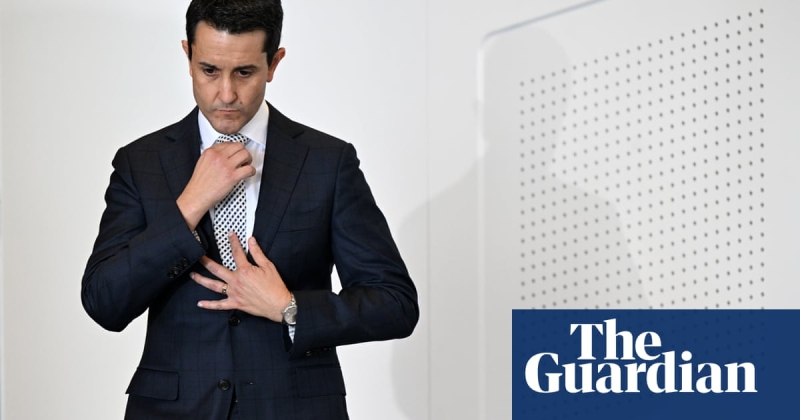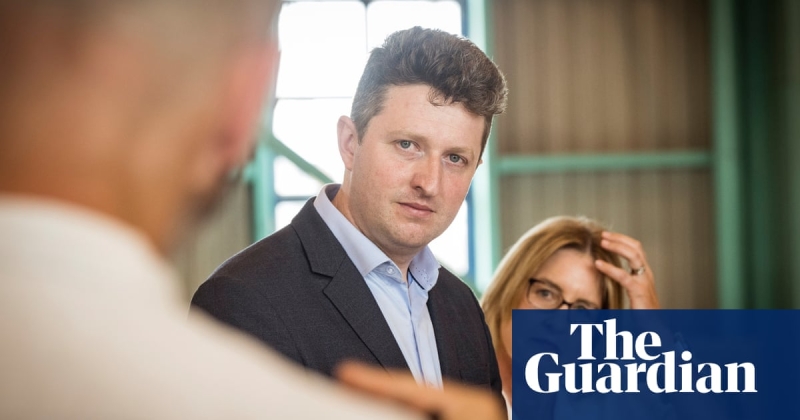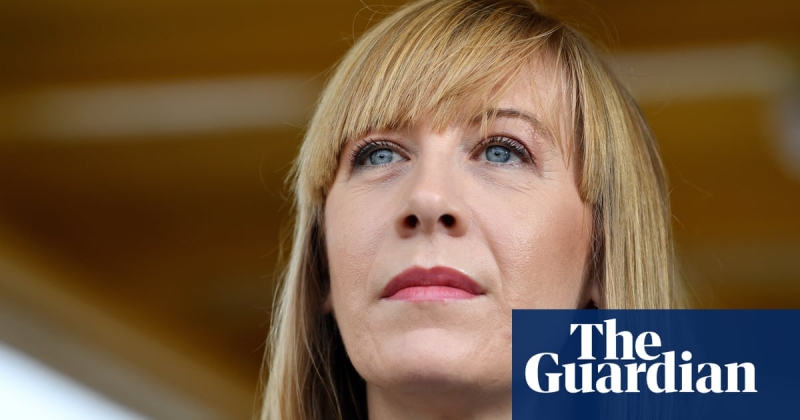Ben Smee Queensland state correspondent
Dumped commitments, lack of transparency and an absence of accountability are the hallmarks of the Queensland LNP government so far
One hundred days on from the Queensland election, the new Liberal National party has a problem of its own making.
Two strategies won David Crisafulli’s party power in October. The first was to convince the state there was a youth crime crisis, then promise hardline responses.
The second was to avoid a real election debate on almost everything else. Small targets, deflections, avoidance and – when those tactics still didn’t stop public concern about thorny issues like abortion or nuclear – outright promises not to do things.
“Adult time” youth justice laws that could result in life sentences for 10-year-olds were passed in December. But having won an election mandate to do not much else, how does the Crisafulli government justify doing anything?
The new strategy seems to be to run everything else through the same Labor Crisis (TM) cycle as youth crime.
Having promised to fully implement Labor’s budget, the LNP has spent its first few months leaking out stories about newly discovered budget blowouts.
This creates a supposed justification for ditching commitments, scrapping worker conditions on government constriction projects, and whatever else the LNP might decide to do in the next budget.
University of Queensland professor of economics John Quiggin said last week’s budget update – and warnings about spiralling debt – had echoes of the strategy used by former LNP premier Campbell Newman.
Newman held a “commission of audit” into the state’s finances that warned about spiralling debt. He then sacked public servants, cut government programs, and turned Australia’s largest ever parliamentary majority into a one-term government.
“You could pretty much have cut and pasted their report from 2012 to what we’re seeing [last week], and the same warnings of disaster and so forth and obviously we haven’t seen any sign of that disaster,” Quiggin said.
Newman’s government proved so unpopular that, even a decade after he was voted out, the spectre of those cuts and his abrasive crash-through personality still hampers LNP campaigns. It is the reason Crisafulli was forced to promise there would be no public sector cuts.
On the subject of promises, the government’s own publicity machine would have us believe that the first 100 days have been a process of ticking off election commitments. Just not all of them.
Crisafulli had promised to appoint himself as the tourism minister in the new government, but did not. He promised to set key performance indicators for his ministers, but the documents are vague with no measurable outcomes that might be used to hold them to account.
The premier’s personal promise – that crime victim numbers would decrease – is also off to a rocky start. A serious incident this month has already highlighted the government’s claim that “adult time” laws would deter children from committing serious offences may not be the panacea they had hoped for. Crisafulli says the laws will get even tougher.
And regional communities who voted for the LNP are already beginning to question why the punitive youth crime laws – which experts overwhelmingly warned would not prevent and decrease crime – have not, in fact, prevented or decreased crime.
And promises to bring transparency back to government seem to have been forgotten almost immediately.
The Crisafulli government’s key to re-election in 2028 is to show the public – especially Brisbane voters who have been wary of the LNP since Newman – a different sort of conservative government.
Alongside the public sector cuts, Newman was also hampered by a party grassroots and parliamentary caucus that veered to the conservative right.
Crisafulli has attempted to assert some authority here, telling party members last year they did not “exist for culture wars” and that they wouldn’t “get everything” they wanted.
Having faced such fierce scrutiny about abortion during the election campaign, Crisafulli has gagged any debate about the Christian right’s pet issue.
But he can’t make the ideological war within the LNP go away either.
Last week, the government served up its compromise to its social conservatives by blocking more than 400 young people on the waitlist for the overwhelmed and understaffed Queensland Children’s Gender Service – and more who might have sought help – from accessing puberty blockers and hormone therapies. Doctors say the decision puts those young people at heightened risk of self-harm.
Before the 2024 election, the LNP repeatedly refused to answer questions about their positions on gender-affirming care and puberty blockers. Guardian Australia asked repeatedly and got no acknowledgment or response.
Having gone to an election refusing to talk about the issue, how does the new government justify acting now?
By using the same create-a-crisis template, and leaking information to a news outlet about a “scandal”.
The health minister, Tim Nicholls, went public with “allegations of non-compliance with clinical guidelines” at one gender clinic in Cairns. He said these raise “concerns about paediatric gender therapies state-wide”, but could not point to any specific concerns.
To understand why the decision is so disproportionate, you need to know two things. The first is that the issues in Cairns are process issues (which does not mean they’re not important) but do not involve any allegation of patient harm.
The second is that the Australian Medical Association says the government reaction places young people at actual risk of harm.
“Doctors, particularly psychiatrists, general practitioners and paediatricians fear the decision will cause significant distress and harms to this already-vulnerable patient cohort, their families and treating clinicians,” AMA Queensland said this week.
There are more than subtle hints that the decision is grounded in ideology. In his statement, Nicholls said there was “contested evidence” about the benefits of hormone therapies for children.
And these views were not formed overnight. Nicholls made similar comments to parliament in 2023. So did several of his colleagues.
In fact, in 2023 Nicholls argued against medical interventions for children with gender-dysphoria by comparing their decisions to the actions of young people in the youth justice system.
He said it was “pushed forward” that children were less responsible for their actions because they “do not understand the consequences of their actions”.
“It is well documented that the brains of young people do not fully develop until they are well into their 20s ,” said Nicholls, who voted in December, along with the rest of his party, to treat 10-year-olds who commit serious crimes like adults.





